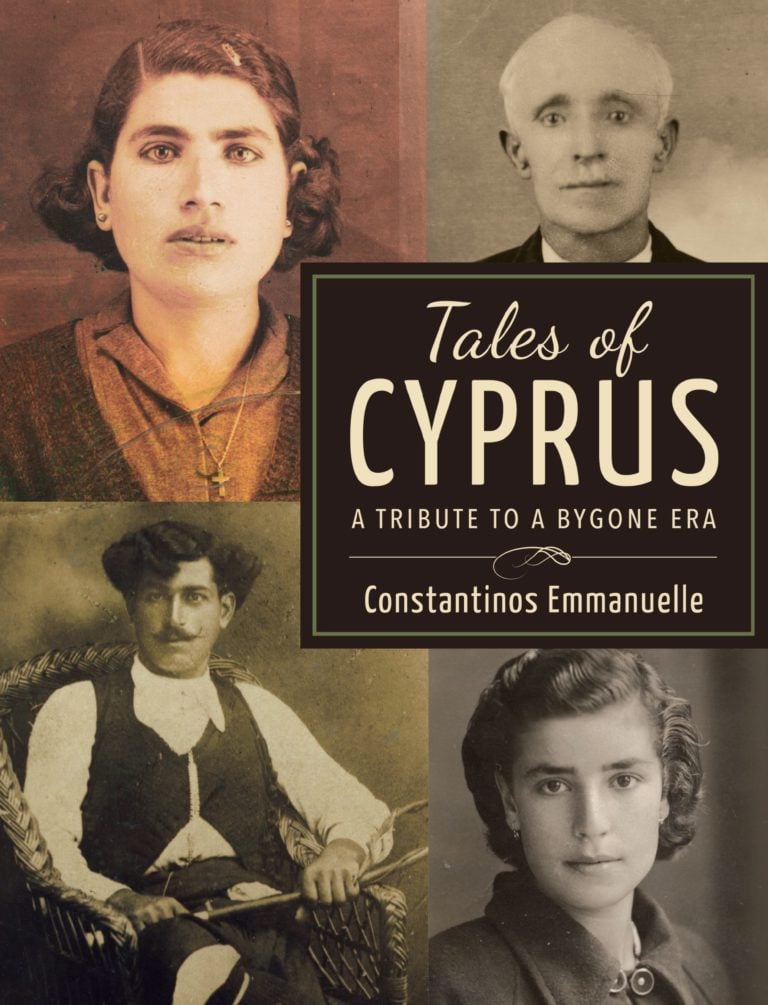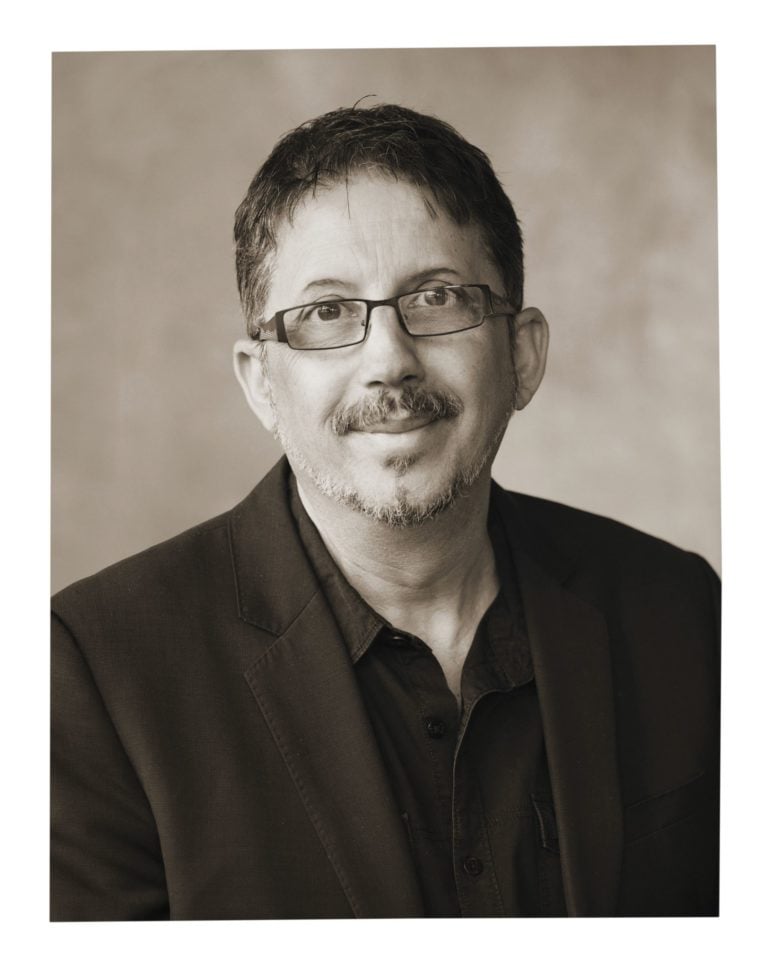We all lived together in harmony. Muslims and Christians together like brothers and sisters. Yes we were poor, but we had the love and support of our family and friends. We were grateful for what we had.”
This opening quote from Tales of Cyprus is from Miltiades Neofytou, the late father of Constantinos Emmanuelle who the book is dedicated to.
The book is Emmanuelle’s tribute to an era of Cyprus that begins in 1900 up to 1950 and includes 41 personal stories from Cypriots that he interviewed over a two year period.
It is a time before 1974, when Turkey invaded Northern Cyprus leading to almost 200,000 Greek-Cypriots being displaced from their homeland and the Mediterranean island being split by an imaginary green line. A time like Neofytou and many Cypriots in Tales of Cyprus describe when the island’s inhabitants lived side by side regardless of their religious beliefs.
Tales of Cyprus first came to life as a Facebook Page in 2014 where each week Emmanuel would post interviews as well as vintage family photos of Cypriots from Australia and overseas.
Over the years, the page’s popularity grew and it currently has over 20,000 followers. Emmanuelle told Neos Kosmos his father’s passing in 2011 was the inspiration behind why he wanted to tell the story of what life was like in Cyprus before 1950.
“That’s when I realised ‘oh my god this guy was so special’. I really miss him. I need to explore his past,” he says.
“So I went around interviewing people, first my mum, my aunties, my uncles and I then spent a lot of time interviewing as many Cypriots as I could find. My first idea was to have an exhibition which would include old photos and some of those people’s stories.”

This led to the first-ever ‘Tales of Cyprus’ exhibition which was held in Melbourne in December 2014 where Emmanuelle’s work showcased the authentic rural and traditional way of life in Cyprus.
“When I started doing the interviews I started to do drawings based on their stories,” Emmanuelle explained.
“I also did paintings and that was what the exhibition was about and the event sold out with 1,500 people attending. By that time I had also created the Facebook Page. Then in 2016 I went to Cyprus and people started hearing about the Facebook Page over there … When I came home the page had grown to 15,000 likes and everyone kept saying to me ‘you’ve got to write a book’.”
Emmanuelle was born and bred in the northern suburbs of Melbourne in the 1960’s to Greek Cypriot parents. His father is from Tsada and his mother Mousere both of which are villages in Paphos. His father first came to Australia in 1949 and two years later, when he saw a photo of the woman who would come to be his wife, arranged for her to come to Melbourne and in January 1952 they were married.
Hearing his parents regale him with stories of their life in Cyprus affected Emmanuelle deeply and he believes the era in his book is when Cypriots where the happiest they have ever been.
“The period I’m focusing on isn’t political,” he says.
“Once you get past 1953 in Cyprus everything turns to shit. You had terrorist guerrilla organisations in action, there were fanatical political Cypriots that wanted Enosis with Greece. While the Turks wanted partition to divide the island so they can live separately. In terms of living together in harmony, most Cypriots who were there during that time I talk about, it was almost like it was a golden era. They didn’t know how good they had it until later on. In total I interviewed 120 people and nearly 100 per cent said to me ‘Costa that was the best time for us’.”

However, Emmanuelle revealed that many Greek Cypriots have taken him to task for including non-Greeks in the Tales of Cyprus.
“You can’t go and develop a project like Tales of Cyprus and not expect that you are going to get some push back,” he says.
We all lived together in harmony. Muslims and Christians together like brothers and sisters. Yes we were poor, but we had the love and support of our family and friends. We were grateful for what we had.
“I had sections of the Cypriot hierarchy who were angry that I included the Turkish Cypriots in my history. That blew me away but it also gave me tharos (courage) and pushed me to do this project even more so. I set out to interview all Cypriots. If you were born in Cyprus it doesn’t matter to me if you speak Turkish or are Catholic or Orthodox, to me you are Cypriot.”
When Emmanuelle visited Cyprus in 2016 to talk about his Facebook Page many of the students he spoke to were surprised at what they were hearing.
“When I gave a lecture to the English school in Nicosia the students who grew up in Cyprus told us that in their 13 years of schooling no-one talked to them about the first half of the 20th century,” he says.

“I asked them why, and they told me it was because Cyprus was under British rule and anything that was under the British rule didn’t get mentioned.”
But Emmanuelle was determined to stay true to the ethos of his book and believes that documenting what life was like in Cyprus during the period pre-1950 was of great importance.
“The impression you’re given from the Church and the education system is that the Greeks and Turks have always been enemies and that the British were bad,” he says.
“But I have 120 witness accounts that say otherwise. They would always say to me, ‘Yes we were poor, but we were happy.’ Yes the British were there, but in terms of Greek and Turkish Cypriots living with each other, that was the only time in our long history that everyone got along. So that is why I am pushing with Tales of Cyprus. People need to know another version of history.”
Emmanuelle revealed that his greatest joy at his passion project being realised was the feedback he has been getting from Cypriots from all over the world.
“I get messages from people who are thanking me from the bottom of their hearts for capturing those stories before it’s too late,” he says.
“Telling these stories was a race against time as many of the people I interviewed are over 80 years old. It is very humbling for me to be in a position that I can archive these stories. In the future I hope to build a museum in Melbourne that is dedicated to this generation. Why not? There is a Jewish and Italian museum in Melbourne, why shouldn’t the Cypriots have one?”
‘Tales of Cyprus’ will be officially launched at the Northcote Town Hall on Sunday 16 December from 3.00-5.00 pm. To RSVP, email rsvp@talesofcyprus.com. There will be special guests, a talk by Constantinos Emmamuelle, book signing and light refreshments served.
